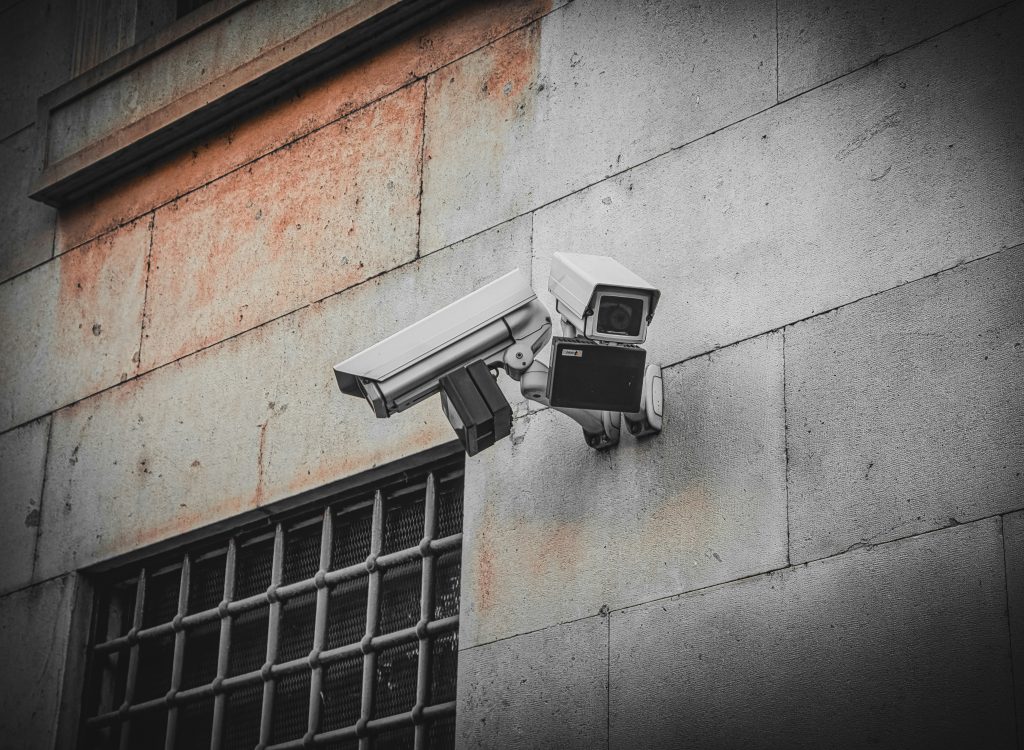Navigating the Shifting Sands of Cartography: Google Maps and the New World Order
The digital cartography landscape is undergoing a seismic shift, sparked by a controversial executive order that’s rippled through the hallowed halls of Silicon Valley. Google, the ubiquitous mapping giant, is set to implement sweeping changes to its U.S. maps, a move that has ignited a fiery debate about political influence on technology and the very nature of geographic nomenclature. This isn’t just about updating street names; it’s about rewriting history and redefining how Americans perceive their world. The directive, issued on the inauguration day by former President Trump, mandates that Google Maps reflect updates made by the federal government’s Geographic Names Information System (GNIS). These changes, while seemingly minor, pack a punch. The Gulf of Mexico will be renamed. Yes, the body of water that for centuries has borne that moniker will now be called something different, for U.S. users at least.
This decision is no mere technicality. It’s a potent symbol of power and legacy, a direct result of a campaign promise fulfilled. It raises serious questions about the separation of technology from political agendas, and the speed with which tech companies can be swayed by government mandates. Google’s rapid compliance, described as their “longstanding practice,” has raised eyebrows, with many questioning whether the company could have, or should have, pushed back. It also raises questions of historical revisionism.
The implications go beyond a simple label change. These alterations affect the way U.S. users experience their digital world. The name of Denali, in Alaska, is also slated for modification. The move, however, is not without precedent. It has historically followed the government’s lead on updating geographic names, and this latest move only solidifies the trend.
## The Political Compass Points to Google Maps
The decision to mandate the changes has been met with a mixture of confusion, frustration, and outright outrage. Many see it as an attempt to erase the historical context and significance of these place names. Critics argue that the decision is a politically motivated move, not backed by scientific reasons, and it sets a dangerous precedent for how governments can wield influence over mapping technology. Others view it as simply correcting inconsistencies that have existed for years. The conversation is as multi-layered as the geographical features themselves. What this situation does clearly demonstrate is the impact and power Google has, and how it is now part of a government’s global strategy in how it is shaping opinions and world views.
##### Navigating Murky Waters: The Tech Giant’s Position
Google’s approach has been one of quiet adherence. Their claim of a “longstanding practice” doesn’t quell the anxiety around the extent of government’s impact on the digital world. The speed of compliance raises several questions. Could Google have negotiated? Did they consider the long-term implications of such an abrupt change? These are queries that are not only being asked by technology experts but also by everyday people who have become accustomed to relying on the company for maps and information. The company’s statement says they will follow the government’s official update which brings a legal aspect to this change, too.
##### The Global Cartographic Community Weighs In
Beyond the political realm, the international cartography community is also reacting to the change. The removal of established, globally recognized place names raises the question of map accuracy and consistency. Will the rest of the world follow suit? The changes are only being implemented for US users and so are more political than geographical in substance. How will Google handle this fragmentation of the geographical reality between user bases? For now the answer remains unclear.
The Google Maps saga serves as a stark reminder of the influence technology companies hold and the complex relationship between political power and the digital sphere. It illustrates the delicate balance between historical preservation and political influence, forcing us to consider who gets to shape the way we view the world—both on our screens and beyond. It’s not just lines and names on a map; it’s a matter of perception, power, and the very essence of how we understand our surroundings, and it is a topic that promises to remain relevant for the foreseeable future. In the digital age, even the most seemingly objective tool like a map becomes a battlefield for ideas, ideologies, and the definition of truth.
Tags: cambios de nombre, cartography, denali, digital maps, Geopolitics, google earth, google maps, Google Maps Gulf of Mexico, map updates, mapas de google, naming conventions, nombre de los lugares, nombre del golfo de méxico, política, political power, politische grenzen, technology influence
Trump’s Controversial Proposal: Renaming the Gulf of Mexico
## Trump’s Controversial Plan to Rename the Gulf of Mexico
President-elect Trump’s recent comments have sparked a firestorm of debate and ridicule. During a press conference, he casually announced his intention to rename the Gulf of Mexico to the “Gulf of America.” This seemingly insignificant proposal has ignited a wave of reactions across the political spectrum, highlighting the often-unpredictable nature of the incoming administration’s policy pronouncements.
##### A Controversial Statement with Unclear Implications
Trump’s statement, made almost as an aside during a discussion on other matters, lacks detailed explanation or justification. The lack of context leaves many wondering about the practical implications of such a name change. Would it involve any legal changes? What would be the cost and logistical challenges involved in updating maps, nautical charts, and international agreements? These questions remain unanswered.
The proposed renaming is viewed by many as a symbolic gesture reflecting a nationalistic approach to foreign policy. It’s a move that seems to prioritize asserting American dominance over the region rather than fostering international cooperation and understanding. Some observers have pointed out that it reflects a broader pattern of statements and actions aiming to project American strength on the global stage.
##### A Wave of Criticism and Satire
The announcement has been met with widespread criticism, with many commentators describing it as a frivolous distraction from more pressing issues. The idea of altering the name of a major geographical feature, which has been used for centuries, seems to many to be an unnecessary use of resources and political capital. The lack of clarity around the reasoning behind such a decision adds fuel to the fire. The situation has also attracted significant satirical commentary on social media, with countless memes and jokes making light of the suggestion.
##### Beyond the Gulf: A Pattern of Bold Statements
The proposal to rename the Gulf of Mexico is not an isolated incident. The President-elect has made a number of similarly unexpected and controversial statements during the transition period, including suggestions about acquiring Canada, Greenland, and the Panama Canal. These bold pronouncements raise concerns about his approach to foreign policy and international relations. They suggest an approach that prioritizes asserting American dominance and influence, potentially leading to strained relationships with other nations.
##### The Significance of Geographic Names
Geographic names often hold historical and cultural significance. Altering a name like that of the Gulf of Mexico has deep implications, impacting not only the geopolitical landscape but also the historical understanding of the area. Many are questioning the potential for unintended consequences and the lack of consultation with other countries that share access to the Gulf.
##### Moving Forward: Uncertainty and Speculation
The long-term implications of Trump’s proposal are unclear. Will the initiative proceed? What steps will be taken to implement it? These questions remain open, adding to the uncertainty surrounding the direction of US foreign policy under the new administration. The situation highlights the volatile nature of the political landscape and the importance of staying informed about developing events and their potential consequences.
The incident underscores the importance of reasoned debate and careful consideration when it comes to making significant decisions that affect international relations and global perceptions of the United States.
Tags: Controversial, Foreign Policy, Geopolitics, Gulf of America, Gulf of Mexico, International Relations, Name Change, Trump, US Politics
Iran Stands Firm on Retaliation Plans Against Israel Amid Rising Tensions
In a significant escalation of rhetoric, Iran has firmly rejected calls from three European nations urging restraint in the face of heightened tensions following the assassination of Hamas leader Ismail Haniyeh. The Iranian government, led by Supreme Leader Ayatollah Ali Khamenei, has publicly vowed to retaliate against Israel, blaming the country for Haniyeh’s death in Tehran. This declaration has sparked fears of an imminent attack on Israeli territory.
The backdrop of this situation is fraught with complexity. The assassination of Haniyeh, a prominent figure within Hamas, has been perceived in Tehran as a direct affront, prompting a swift and aggressive response from Iranian leadership. Despite the calls from Western powers, including the United Kingdom, for Iran to exercise caution and avoid further escalation, the Iranian officials remain resolute in their stance. They have indicated that any retaliatory measures are imminent, with assessments suggesting that a strike could occur as early as this week.
The geopolitical implications of this potential conflict are profound. The United States has expressed concern over Iran’s intentions, cautioning that the situation could spiral out of control, further destabilizing an already volatile region. The assassinations, counterattacks, and subsequent threats highlight the precarious balance of power in the Middle East, where alliances and enmities shift rapidly.
Amidst these tensions, there are glimmers of hope for diplomatic negotiations. Reports suggest that discussions are underway regarding a potential hostage release and a ceasefire deal in Gaza, which could temporarily delay Iranian military actions. However, the effectiveness of these negotiations remains uncertain, as the Iranian leadership appears unwavering in its demand for retribution.
As the world watches this unfolding drama, the stakes are incredibly high. The possibility of direct military conflict between Iran and Israel could have catastrophic consequences, not only for the two nations involved but also for regional stability and global security. Analysts warn that any miscalculation could ignite a broader conflict that involves multiple countries in the region, exacerbating an already dire humanitarian situation in Gaza.
The Iranian response is emblematic of a broader cycle of violence that has characterized relations between Israel and its neighbors for decades. The dynamics of this conflict are further complicated by the presence of various militant groups, shifting alliances, and the interests of global powers in the region. As tensions escalate, it is crucial for international actors to engage in meaningful dialogue to prevent a resurgence of hostilities that could lead to devastating repercussions.
As this situation continues to evolve, the international community is urged to take proactive measures to de-escalate tensions. The stakes are higher than ever, and the potential for conflict looms large. With both sides preparing for potential military action, the question remains: will diplomacy prevail, or are we on the brink of a new chapter in the ongoing saga of Middle Eastern conflict? Only time will tell as the world holds its breath, waiting for the next move in this intricate geopolitical chess game.
Tags: Geopolitics, Hamas, Iran, Iran attack Israel Israeli, Iran attacks Israel, Israel, Retaliation
Iran’s Revolutionary Guard Claims Responsibility for Assassination of Hamas Leader
In a shocking revelation, Iran’s Revolutionary Guard has publicly acknowledged its involvement in the assassination of Ismail Haniyeh, the political chief of Hamas. The incident, which took place in Tehran, has sent ripples of concern through the Middle East, further complicating an already tense geopolitical landscape. According to the Revolutionary Guard, a short-range projectile was responsible for the attack, marking a significant escalation in Iran’s military activities and its direct engagement in regional conflicts.
The assassination has not only humiliated Iran’s leaders but has also dashed hopes for a ceasefire in the ongoing conflict between Israel and Palestinian militant groups. This event raises questions about the stability of the region and the potential for retaliatory actions from Hamas and its allies. As the dust settles, the implications of this high-profile killing are being closely monitored by international observers and regional powers alike.
In light of this assassination, Gen. Michael Kurilla, a key figure in U.S. military operations in the Middle East, is expected to mobilize a coalition similar to the one that previously defended Israel against Iranian aggression. This coalition aims to counterbalance Iran’s influence in the region and prevent further escalations that could lead to broader conflicts.
The Iranian media has been rife with commentary on the assassination, often framing it as a significant blow to the nation’s prestige and highlighting the internal and external challenges it faces. The narrative suggests that the Iranian leadership may be feeling the pressure from both domestic unrest and the complexities of international relations, especially as they navigate their alliances with militant groups like Hamas.
As tensions continue to rise, the aftermath of Haniyeh’s assassination will likely prompt a re-evaluation of strategies among various factions in the Middle East. The heavily armed nations in the region are preparing for potential ramifications, with many observers predicting an uptick in hostilities. The geopolitical chess game is becoming increasingly complicated, as Iran’s actions may provoke a stronger response from other nations, particularly Israel, which has historically viewed Hamas as a significant threat.
In conclusion, the assassination of Ismail Haniyeh not only signifies a pivotal moment for Iran but also reshapes the strategic landscape of the Middle East. As nations brace for potential fallout, the international community watches closely, knowing that the repercussions of this event could have lasting effects on peace and stability in the region.
Tags: Geopolitics, Hamas, Iran, Middle East




